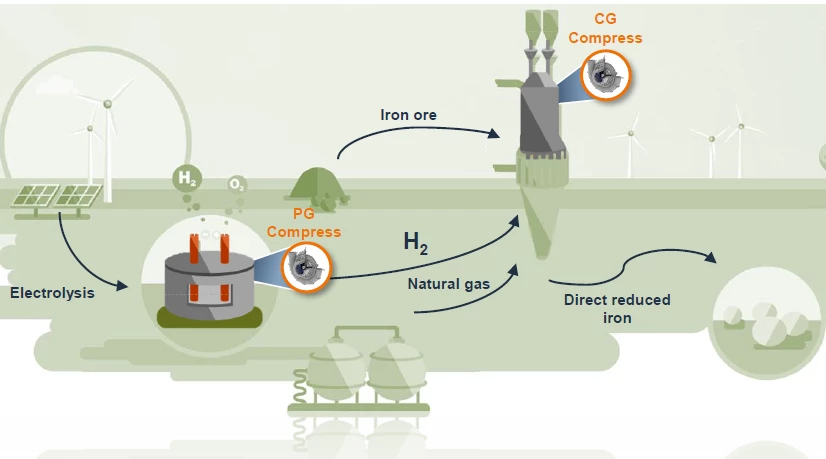The three integral gear units will be used in the compressors of a direct reduction plant of the SALCOS project at the Salzgitter site. RENK is thus underlining its position as a key supplier for the energy transition.
“We are very pleased to be part of this beacon project for green steel in Germany”, says Nadine Despineux, CEO of RENK’s Marine & Industry Division. “With our innovative gearbox solutions for the compression of hydrogen, we regularly push the limits of what is technologically feasible with incredibly high speeds. This way, we are already helping to reduce CO₂ emissions in steel production by around 30 per cent. Water is then produced instead of CO₂. This way, we support our customers significantly on their way from fossil energies to climate neutrality. And we see great growth potential, because the entire industry is currently converting its production processes.”
“With our technology, our customers are able to switch to hydrogen-rich reduction gas without structural changes to the integral gear compressors. As the name suggests, the gearbox is an integral part of this. We are glad to have RENK-Maag as a strong partner at our side. With this beacon project, we are supporting our industrial customers on their way to decarbonization and are thus an important building block for the steel industry to achieve its CO₂ reduction targets,” says Clemens Förster, Sales Manager of Siemens Energy Compressors GmbH.
“Our high-speed gear units for compressors are an important component for the ramp-up of the hydrogen economy – whether for storage, processing or transport. These turbo compressors are characterized by a high pressure build-up and are suitable for large gas volumes,” says Thomas Fritschi, Managing Director of RENK-Maag in Winterthur. “Specifically, we are talking about gear units with a speed of 8,000 to 50,000 revolutions per minute – but we have also produced units with a speed of over 60,000 revolutions per minute. Just for comparison, the engine speed of a passenger car in normal driving is a maximum of 2,000 to 3,000 revolutions per minute.”
The gear units are developed and built at the RENK site in Winterthur, Switzerland. They are used in a direct reduction plant in Siemens compressors. In direct reduction, iron ore is converted into sponge iron with the help of a reducing agent. In the process, the reducing gas dissolves the oxygen out of the iron ore without it melting. This process takes place in the direct reduction plant at overpressure and at about 1,050 °C. The iron ore is reduced to sponge iron. Instead of CO₂, this technology produces water, which in turn is reused in the integrated process. In a direct reduction plant, both natural gas and hydrogen can be used flexibly as reducing agents. In this way, the natural gas content is gradually reduced and finally completely replaced by hydrogen.
Against this backdrop, RENK is increasingly using the company’s existing industrial know-how in the field of high-speed gear solutions, couplings and slide bearings in new areas of application, including carbon capture technologies and heat pumps in addition to hydrogen.

